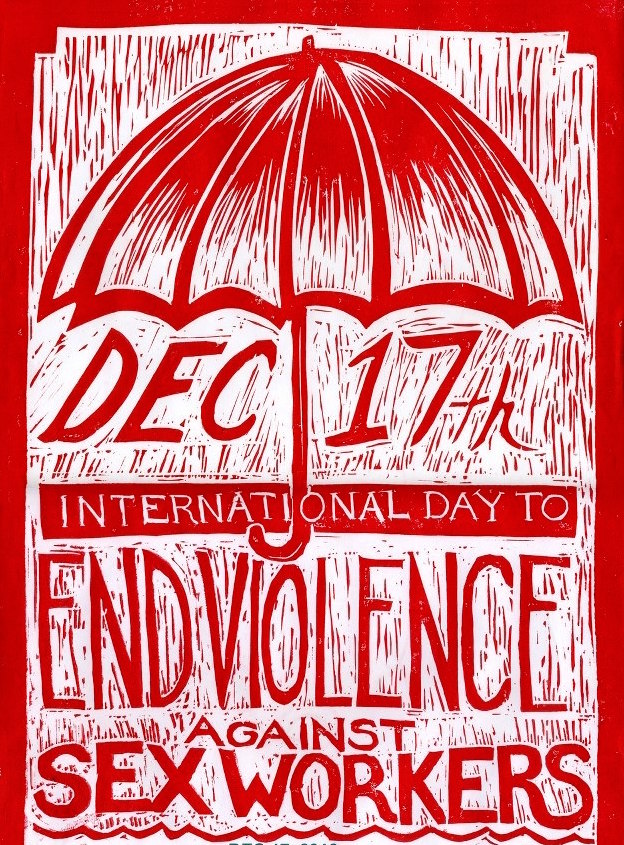
Housing and sex work
 Since the Sex Workers United Against Violence (SWUAV) Society formed, we have been working for better living and working conditions for sex workers, primarily through our participation in the constitutional challenge to the previous Canadian laws criminalizing prostitution. However, what we know and understand too well as current and former sex workers is that fighting against stigma and discrimination is a critical aspect of the larger movement toward equal human rights for sex workers. Stigma and discrimination against sex workers comes up in many different ways – some obvious and some more subtle – and in many different areas of life, including healthcare, access to social services and in our ability to secure and maintain housing.
Since the Sex Workers United Against Violence (SWUAV) Society formed, we have been working for better living and working conditions for sex workers, primarily through our participation in the constitutional challenge to the previous Canadian laws criminalizing prostitution. However, what we know and understand too well as current and former sex workers is that fighting against stigma and discrimination is a critical aspect of the larger movement toward equal human rights for sex workers. Stigma and discrimination against sex workers comes up in many different ways – some obvious and some more subtle – and in many different areas of life, including healthcare, access to social services and in our ability to secure and maintain housing.
Everyone in our community knows how important it is to have a secure place to call home – this is evidenced by all of the strong voices fighting for affordable, livable housing as a right. However, for many sex workers home can also at times be a workplace. There are many advantages to being able to connect with clients in your own living space – for example, it’s a place that you control, so you know where all of the exits and phones are. In ideal situations, you can even make arrangements in advance with neighbours or building staff to help support you in the event that trouble arises.
Unfortunately, many sex workers’ housing situations are much less than ideal. Sexual harassment within their housing is something that sex workers experience on a regular basis. For example, building management or neighbours demand free services, threatening to call the police and report sex workers or their clients if they don’t get their way. Many SWUAV members have shared disturbing stories of being home alone and having male building staff illegally enter their suite without permission or invitation and then refuse to leave. Countless other sex workers have received eviction notices and ultimately lost their housing when building management discovered their occupation.
Getting and keeping safe and secure housing often means hiding the fact that you are a sex worker from your landlord and your neighbours. Sometimes sex workers have to stretch the truth of their situation to get their place. To make matters more difficult, some tenancy agreements include something called a “crime-free addendum” – a policy that states that if you’re found to be breaking the law in the building then your eviction can be expedited. The passing of the Protection of Communities and Exploited Persons Act (PCEPA) in December 2014 made the whole situation much worse and more dangerous for sex workers by criminalizing all clients and placing stringent restrictions on when and where sex workers can legally work.
Sex workers are members of your community, and it’s important for everyone to consider: if sex workers are unable to safely work at home, where will they be working? For some this might be another relatively safe indoor venue, such as a massage parlour. For others, and for the majority of SWUAV members, not being able to work at home likely means working in an outdoor, public location and then providing services in clients’ vehicles, in hotels or even in clients’ homes. The common denominator in this last group of spaces is that sex workers do not have control over them – they are more isolated, often unfamiliar places which results in a higher risk of violent and coercive interactions.
The struggle for social housing and increased access to affordable housing is an important one and affects many people from different backgrounds. For sex workers, the criminalization of our occupation comprises a unique barrier to accessing and maintaining housing. Demanding social justice for sex workers means demanding an end to occupational stigma and discrimination in all its forms, including decriminalization for both workers and their clients. It also means ensuring that the demands of “housing is human right” and “housing for all” include sex workers. This means that as a movement we won’t settle for housing with policies that make it more difficult for sex workers to see clients in their home, such as early curfews and policies prohibiting overnight guests. It means that we will offer safety and support to our neighbours rather than judgment and condemnation. It means that we will all stand together to protect each other when laws, poverty, homelessness and violence threaten to divide us. Sex workers’ rights are human rights!
